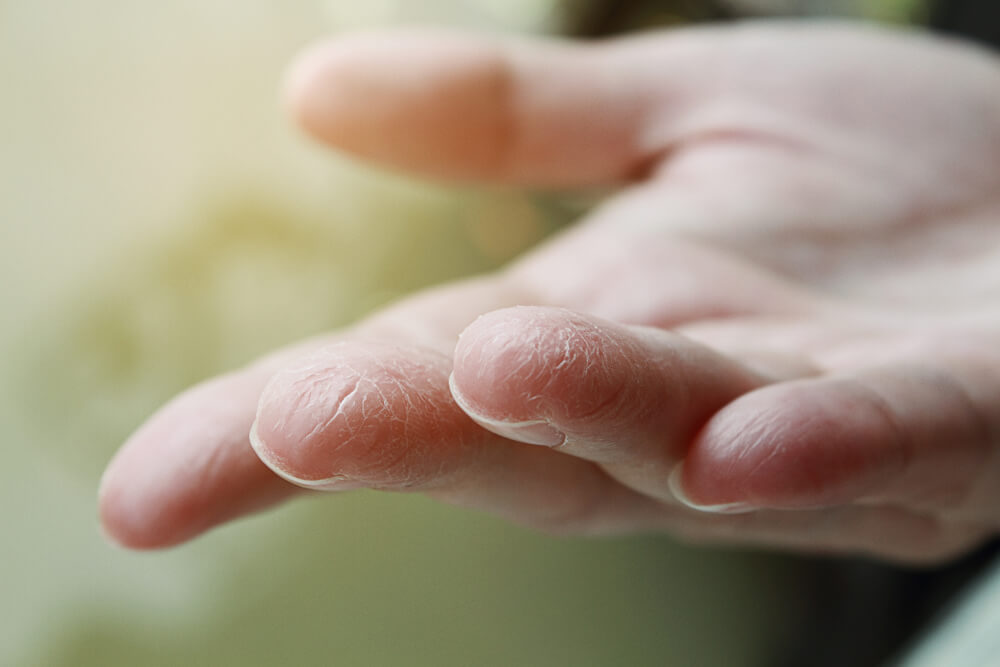If you’re experiencing dry, itchy skin and eyes, chapped lips, and bloody noses, then the air in your house is too dry. For many of us, humidity is associated with muggy and uncomfortable summer temperatures. However, humidity levels and dry air in the winter are equally critical in keeping you healthy and comfortable in your home.
3 Signs of Dry Air in the House
Many signaling factors indicate that your home is experiencing an excessive lack of humidity in the air. From upper respiratory issues to furniture cracking, there will be obvious signs that the air in your home is too dry and needs attention. Here are some indications:
1. Health Implications

With the drop in temperatures during winter, the air naturally becomes drier. The decrease in humidity causes various health problems commonly associated with the cold. Due to its lack of natural humidity, cold, dry air draws moisture from anywhere, including your body.
The lack of moisture from your skin, throat, and sinuses will cause your nose to dry out, weakening the mucus your body uses to block harmful germs and viruses. This process makes you more vulnerable to contracting a sinus infection, cold, or the flu.
Dry air inside your home has similar effects on your pets, as well. Dry air is not picky when searching for moisture, making your pets a target. They can also experience dry throats and noses, upper respiratory infections, and other health risks.
2. Physical Discomfort
Dry air in the home can cause health issues and make an uncomfortable environment. Static electricity builds when the air in your house is too dry. Static electricity causes that quick, painful electric shock you feel after touching a metal surface.
Aside from the static electricity you may experience, dry air also causes itchy eyes, throat, nose, and skin, as well as chapped lips that can become uncomfortable and painful. With all these physical discomforts, some may find it hard to get comfortable enough to fall asleep at night, disturbing their sleep cycle and everyday routine.
3. Impact on Furniture and Household
The dryness in the air can warp or damage wood furniture, musical instruments, and paper items in the home. Instruments can lose shape and tune; items like books can become warped and brittle. Laundry can also become a pain because, with dry air and static electricity, fabrics cling to one another.
As you can see, a certain level of humidity is necessary to keep a comfortable environment in your home.
Healthy Humidification
According to the Environmental Protection Agency, your home’s humidity should stay between 30 and 60 percent. With the outdoor temperatures fluctuating, your indoor humidity level will also vary. However, keeping a healthy humidification level in your home will help keep you healthy and lower your utility bills in the winter.
The more humid your indoor air, the warmer it feels since moist air retains heat better than dry air. When your indoor air is properly humidified, it no longer needs to seek moisture elsewhere, allowing your skin’s natural moisture to retain body heat. With your body retaining more natural heat, you and your family will rely less on your heating system to heat your home, thus reducing the cost of energy.
Dry Air Solutions
There are a few solutions for eliminating dry air. With humidifiers, proper air ventilation, and even indoor plants, you’ll enjoy the benefits of humidity in your home again.
Humidifiers

One of the simplest ways to keep your home at a healthy humidity level during the winter is to consider a whole-home humidifier. Unlike individual humidifiers, whole-home humidifiers are installed directly into your HVAC system to humidify your entire home, rather than a single room.
The humidifier draws water from your main water line and adds it directly into your system’s airflow to humidify the air.
Proper Ventilation and Air Circulation
Proper ventilation plays a crucial role in addressing dry air in the house by helping to manage humidity levels and promote air circulation. When indoor air becomes excessively dry, bringing outdoor air into the home can bring in moisture. Proper air circulation helps distribute moisture evenly throughout the home, reducing stagnant air.
Indoor Plants
Plants in your home can offer more than just a particular design aesthetic. They can also bring additional moisture into your home, humidifying the air when it is dry. Plants can do this through a process called evapotranspiration. Water from the soil is brought up through the plant’s roots to the leaves, then evaporated into the air through the leaves’ pores.
For professional humidification and indoor air quality services, contact Fayette Heating & Air today. Our trained professionals can install a whole-home humidifier and inspect your ductwork to ensure proper ventilation and air circulation before winter hits and dry air sets in.


 Skip to content
Skip to content


